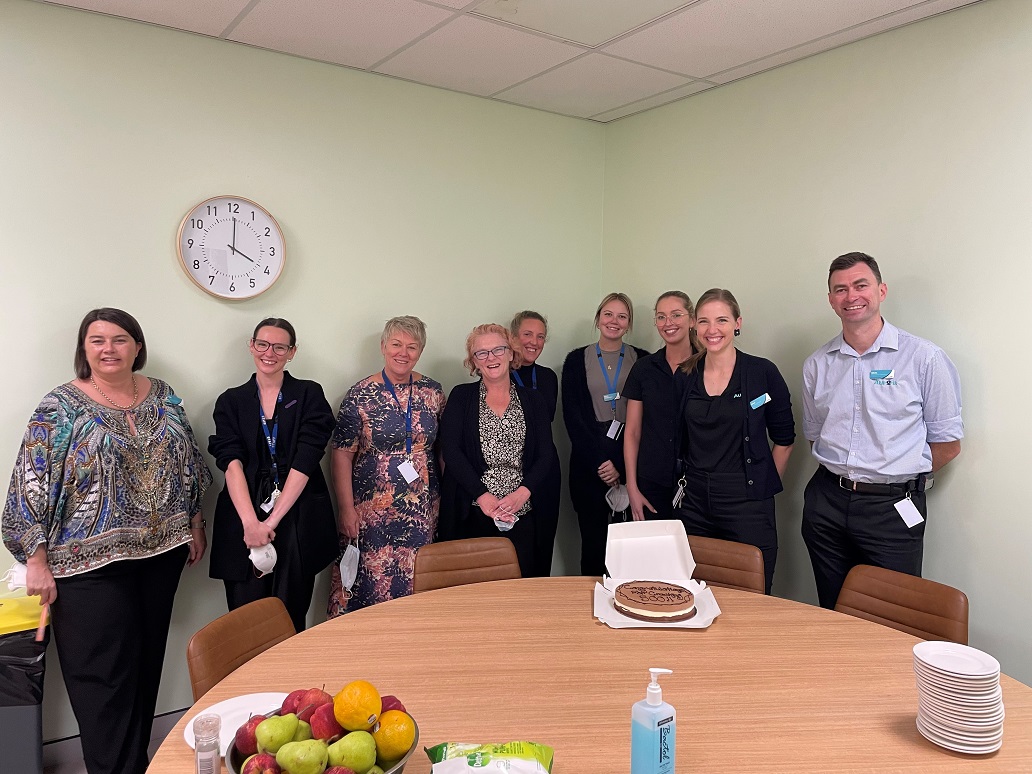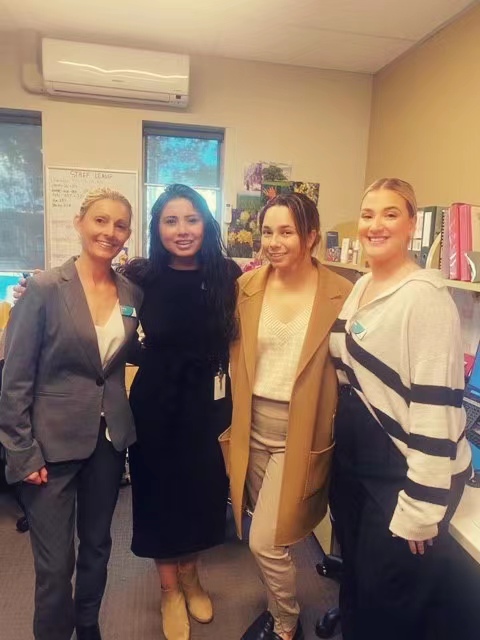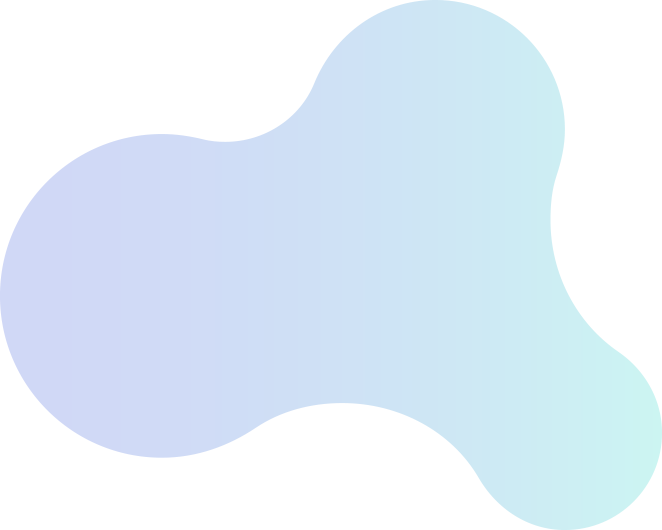
Scan the QR
to read the magazine on mobile phone
Editor’s note:
Aurora Healthcare is a leading specialty health services provider in Australia and Singapore, with a focus on mental health, rehabilitation, oncology and cardiology. With almost 1,000 mental health beds across 14 hospitals, Aurora Healthcare is one of Australia's largest mental health providers. This month, we are pleasure to have two managers, Erin Cossons from the South Coast Private Hospital and Shadi Gray from the Hills Clinic. They will take us to a deeper look into their career and the mental health business of Aurora Healthcare in Australia.
Q: Hi, Erin and Shadi, welcome and thank you for taking this interview, to start with, please give us a brief introduction of yourself.
Erin: My name is Erin Cossons. I’m the CEO and Director of Clinical Services at South Coast Private Hospital. I've been a nurse for 18 years. I have worked in South Coast Private as registered nurse on the floor, clinical nurse educator, clinical nurse consultant. And I also supported the commissioning of the private hospital in 2022. During the pandemic, I have supported other hospitals within the Aurora Group as well.

Erin Cossons, CEO and Director of Clinical Services, South Coast Private Hospital
Shadi: My name is Shadi Gray. I joined Aurora 7 years ago. Currently, I’m the Allied Health Manager for the Hills Clinic. My role is to manage allied health for both inpatient and outpatients’ day program, as well as producing therapeutic evidence based programs for the Hills Clinic and Aurora.

Shadi Gray, Allied Health Manager, the Hills Clinic
Q: Can you tell us about the hospital you work at?
Erin: South Coast Private Hospital is a 90-bed private mental health facility based in the South Coast of New South Wales. We specialize in the treatment of military return service people, emergency services for occupational trauma, civilian trauma in general adult psychiatry. We focus on treatment for trauma. However, we do branch out into other areas as well.

Shadi: The Hills Clinic is an 85-bed inpatient hospital. Our patients comprise of clients with adult disorders, addiction, and specific mental health disorders. So what makes that hospital unique is that we provide holistic approach to mental health care. We believe mental health is not only a treatment of the mind, but a whole life approach. This means we provide patients with various evidence based therapeutic interventions, such as cognitive behavior therapy, dialectical behavioral therapy, acceptance and commitment therapy, and narrative therapy.
We foster creativity throughout therapy, pet therapy, horticulture therapy, and we have a big emphasis on physical health, through boxing classes, martial art classes, gym sessions, mindfulness and meditation. We also provide our patients with a continuity of care in the form of outpatient day program that caters to a variety of mental health disorders. We have about 130 patients who come through a clinic for a patient group program weekly on average.

Q: Compare with other private mental health providers in Australia, what is the differentiation point of Aurora?
Erin: I've had the joy of working across many different companies. One of the things that sets Aurora aside is the fact that it's a nimble and flexible business, and we're able to quickly change with the needs of the business. This puts our people first and encourages a culture of personal and professional growth. We do not set our ways with how we have to do things, which makes us a very attractive health care provider.
Shadi: Compare with other private facilities, I have found that Aurora to be so supportive and collaborative. I have received support from not only at the Hills Clinic, but also through Aurora and Luye has been nothing but phenomenal. We have a strong culture of connection and empowerment for our patients and employees. Aurora Healthcare has provided amazing opportunities to foster innovation and collaboration. This is why Aurora Healthcare stands out from the rest, because as a whole, we're always finding new ways to maintain the best patient centered care for our clients, but also a growth mindset for our employees.
Q: Why did you choose to work and stay in the mental health industry?
Erin: Working in mental health is an overwhelmingly rewarding part of nursing and we support our patients on their recovery journey. It can sometimes take lots of twists and turns. However, the sense of achievement when a patient leaves our service in a better condition is so amazing and rewarding. I love being part of the patient journey to help them recovery. This is why I’ve chosen to remain working in mental health.
Shadi: I've drawn to mental health industry because I have a genuine desire to help people improve their psychological wellbeing and to lead a healthier and fulfilling life. So being able to support individuals through their emotional challenges, and witness them improve has been extremely rewarding. Moreover, the mental health field is constantly evolving with ongoing research and new therapeutic approaches emerging. I enjoy learning and working in an industry that offers continuous growth and staying at the forefront of knowledge and innovation.
Q: Speaking of your working experience at Aurora, how do you feel about it? Can you describe your daily work routine at Aurora?
Erin: I'm so passionate about coming to work each day. Aurora’s business is extremely supportive, and I’m passionate about the service we provide to our local community. My daily work is very dynamic and it can change in a drop of a hat, but this is kind of how I like it.
Every morning, I work with the intake team to check our bed numbers, number of discharges and admissions; and then I go to each of the wards and check with each in-charge nurses and the nurses on shift to see if they need my support. Then I visit every department of the hospital. The whole reason for this is to try and understand if there's any pain points for the day. If there's anything I can do to support them or to remove those pain points. I then spend some time doing emails and meetings. I have an open door policy. So doctors come in and out multiple times a day, we have a very collaborative approach to dealing with our patients.

Shadi: I can't emphasize enough that I am so grateful for working for Aurora. I love the constant support and guidance I receive, which has ultimately made me more confident, and enriched my knowledge and personal growth. So my daily routine involves morning preparation, such as reviewing emails, any urgent tasks and prioritizing the day accordingly, this includes team coordination, meeting with my allied health staff to discuss ongoing projects, patient care plans, group preparations, whilst providing guidance and support as needed. I also meet with the executive team daily to discuss any issues with the hospital and any patient concerns. Furthermore, weekly multidisciplinary team meetings with psychiatrists and nurses and allied health to discuss each patient progress and revision of their care plan, utilizing evidence based interventions to address patient psychological needs and promote their wellbeing. I also make sure to routinely review patient records, documentation, treatment plans, progress notes, and any relevant communication, to ensure compliance with legal and ethical guidelines. And lastly, I make sure to allocate time for administrative duties
Q: How do you work with your team members in your daily work? Helping and supporting them to achieve mutual growth and common target?
Erin: My leadership style should support my team members to do their jobs well. I work hard to remove the barriers and the pain points on a daily basis. I support my team to be accountable, take ownership, be solution-focused, be positive and approachable. I lead, by example, and drive a positive experience that encompasses organizational change.
When I go to the departments every morning, I asked them one of the pain points for the day. And depending on what those pain points are, I will do my very best to remove those pain points so that everyone can actually be as effective as they can in their day to day roles. For example, if we have a patient who's running late for the rTMS treatment session, if we don't look at a solution early on, that then pushes the whole day back. So then I’ll talk to the team as coordinator and see if there's a way that we can move that person from the actual timetable for the morning and put them on the afternoon. In that way, it doesn't push everyone else's appointments back for the day. So it's really about trying to understand where the challenges are and what we need to do to remove those challenges.
Shadi: My team and I collaborate based on Aurora shared values. Those values include care with compassion, which means take care and learn and support our patients, and also each other, empathy and understanding is at the core interactions. We are all openly embrace new ideas and concepts, learning and growing with each other and welcoming change and improvement. Lastly, we encourage other, offering guidance and support, we celebrate successes, we always motivate and learn from one another using a strength based approach. As a team leader, I led by example, demonstrating to my team the Aurora values and a commitment to the team's goals. I encourage a continuous improvement and personal accountability. My team knows they will always have my support that I encourage their growth, and I’m committed to providing a positive environment. I believe if I take care of my team, they will provide the best care for our patients.

Q: As an international company like Luye Medical, do you have any multinational team collaboration experience? What are the key factors to a successful teamwork?
Erin: I have had experience working in a multinational team collaboration previously, this was in developing a new medical device. It was being manufactured in Japan. When I reflect on the key factors of success, the key factors were having really good communication, being culturally aware, trust and respect, goal alignment, flexibility, and adaptability, leadership and coordination. They were the basic key six areas that make for a successful, multinational collaboration.
Shadi: I actually have worked with Luye Medical on a few projects over the years, such as collaborative presentations in relation to young adults and mental health. So every project has been enjoyable and an essential learning experience for others and myself. I have been very grateful for these opportunities to share my knowledge and experience. Some of the takeaways for a successful multinational team include, effective communication and cultural awareness. So understanding that cultural diversity in a multinational team can bring a comprehensive perspective and ideas, therefore, being able to be part of a multinational team, really fosters inclusivity, respect, and understanding of different values and communication styles.
This is really provided me with opportunity to learn, grow and appreciate the various cultures and customers. So moreover, being part of a multinational team brings together individuals, we have different background, skills and experiences. This encourages us to share more expertise and perspectives. So when we are able to do this, we capitalize on the diversity that promotes creativity, innovation, and problem solving, which ultimately creates the knowledge sharing, learning, and progress from each other.

Shadi Gray at Online Seminar with Chinese Psychiatrists (organized by Mindfront)
Q: Being a part of the medical team can be tiring and pressured, how do you stay in a mood and motivate your team?
Erin: For me, it's about that constant checking with the staff. I’m available on the phone, by text message, or via email. My office door is always open. I think just being available to your staff so that they feel supported every day is very important. I also think self-care is very important. I sit there in the morning and I listen to the birds and look at the sunrise drinking a cup of coffee. For me, that's my grounding and centering for the day. In the early evenings, I might go for a walk along the beach or go to yoga. I make sure that I actually do those things and which is really important for me to be able to let go and to have a positive experience and to be available and then be emotionally present for my staff.

We also offer employee assistance program. When people are starting to struggle with their personal life or work life. They can access psychology and counseling. It is part of our occupational health and safety policy. We want to try and prevent psycho social injuries at work, so staff can access counseling free of charge to try and support them. We also at South Coast are looking at running a yoga session twice a week, which will then encourage staff to really focus on their own self-care. We have a couple of staff that work here that are yoga instructors, so we really want to promote that positive workplace that we actually care for our staff, we want them to feel the love as well.
Shadi: I practice what I preach. We tell our patients to do self-care to go out there and live a healthy lifestyle, so I do the same thing. In relation to my self-care, one of my passions is CrossFit. I'm actually a cross fitter as well, which is an exercise that I do every day and participate in competitions. I make sure I have balance in my life and work. I'm passionate about my work, but if I put all my baskets in my work, that can be very taxing on me. So I make sure I have time for family. I make sure I have time for exercise and for fun. I do promote that to my staff as well, we go outings for dinners and things like that, because it's not just about the work. It's about connection with each other and the fun we can have together. And we also have an employee assistance program where staff can access counseling services if they're struggling with even personal things in their life as well. We have a monthly recognition program for our staff, so we recognize excellence in our staff and reward them.

Q: Luye Life Sciences Group will celebrate its 30th birthday next year, please share your expectation for the future of Luye and Aurora Healthcare.
Erin: Luye and Aurora are both leading providers in the health care industry, and my expectation of Aurora is to continue to provide the best mental health care in Australia. I'd like to support the business to continue to grow and be able to provide treatment to even more patients. I'd like Aurora Healthcare to look at novel ways to access regional and remote communities that otherwise wouldn't have access to treatment.
Shadi: My expectation for Luye and Aurora Healthcare is that we become the leaders in innovation and adaptability. The healthcare industry is continually evolving, which means that we can be industry leaders in providing the most up to date patient care initiatives. I also expect that through our mutual relationship, we can continue to embrace integrated and collaborative care models by breaking down silos and fostering collaboration between different health care providers and specialties. Organizations can enhance care, coordination, improve outcomes, and deliver comprehensive and holistic patient care for all our patients.

